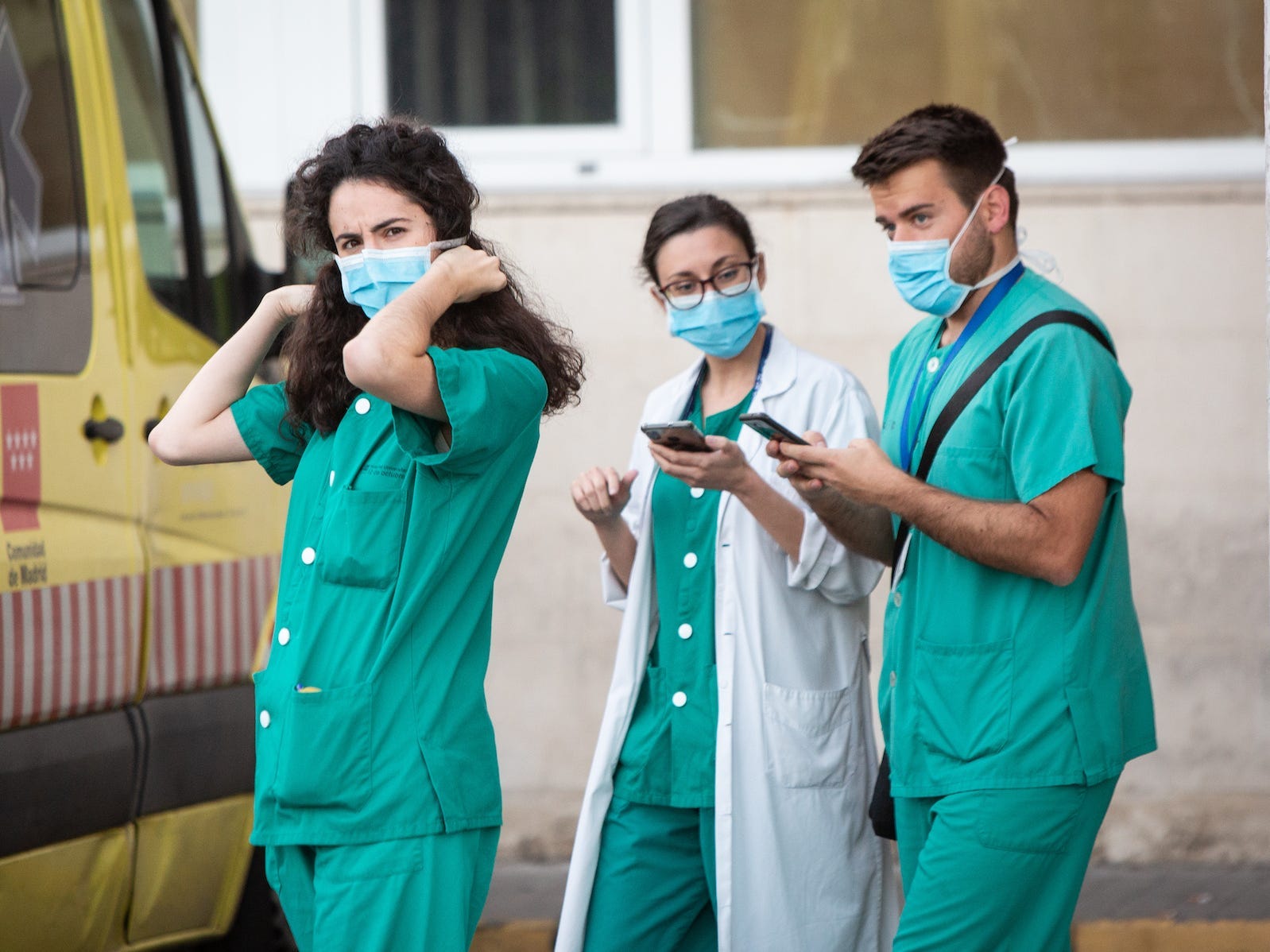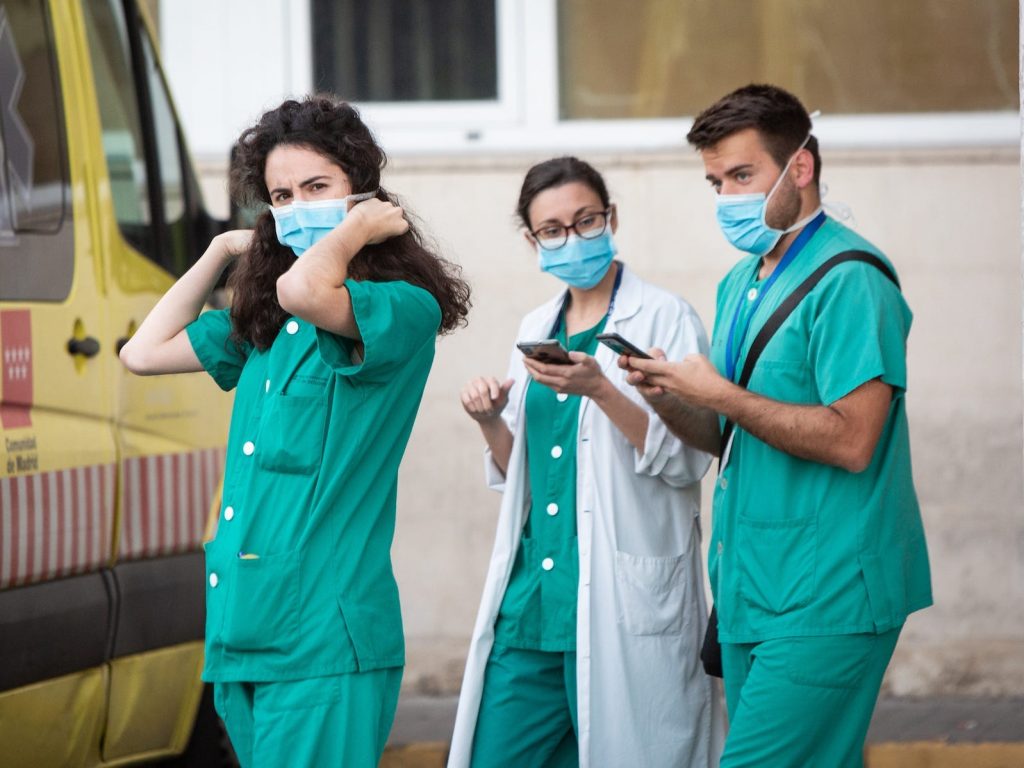
Pablo Cuadra/Getty Images)
- Giving one shot of AstraZeneca's vaccine and then one dose of Pfizer's boosted antibodies, study found.
- The side-effects were similar to having two doses of the same vaccine, the scientists said.
- Some European countries have stopped using AstraZeneca's shot in people under 60, after safety concerns.
- See more stories on Insider's business page.
Vaccinating people with one shot of AstraZeneca's COVID-19 vaccine and one shot of Pfizer's was effective, and side-effects were as expected, researchers from Spain's leading public health body said Tuesday.
The mix-match study, called CombiVacS, is the first in the world to provide data on the immune response when the vaccine from Pfizer and BioNTech is given after a dose of AstraZeneca's vaccine.
Antibody levels were about 40 times higher for those who got Pfizer's vaccine two weeks after AstraZeneca's, compared with participants who got a single AstraZeneca dose, the researchers from Carlos III Health Institute said in a presentation of preliminary results.
The group found that neutralizing antibodies that fight off the virus were boosted more than seven times higher after the dose of Pfizer's shot. This is higher than described elsewhere with two doses of the same vaccine, they said.
There were 673 healthy people aged 18 to 60 in the trial, which spanned five different hospitals – 441 people got a dose of AstraZeneca's vaccine followed by a dose of Pfizer's, while the control group, which didn't receive a second dose, consisted of 232 people. There was roughly a 50-50 split between the number of women and men in the study.
The study didn't directly compare the combination of vaccines with two doses of AstraZeneca's shot. It's not clear if the antibody response would be boosted to the same levels when doses were spaced out by more than two weeks.
The study hasn't been published as a research paper or scrutinized by other experts in a peer-review.
Side effects as expected
The Spanish researchers said that side effects after the combination of vaccines lasted about two to three days, and were as expected with two doses of the same shot - but they didn't directly compare them in the study.
The most common side effects were injection site discomfort, headache, tiredness, chills, mild nausea, mild cough and fever, they said. The study is not big enough to detect rare adverse events.
Another mix-match study from Oxford University found that combining Pfizer and AstraZeneca coronavirus vaccines produced worse flu-like side effects than two doses of the same vaccine. The Oxford study researchers are now investigating whether spacing the doses to 12 weeks reduces the side effects.
Jesus Antonio Frias, clinical director at Carlos III, said that the study's results supported the possibility of vaccinating patients who have received the first dose from AstraZeneca. But the decision is not up to the study's investigators, he said.
Spain stopped using AstraZeneca's vaccine in Spaniards under 60 years-old in April, due to the risk of unusual blood clots. There are about 1.5 million young Spaniards, including health workers, who received one dose of AstraZeneca's vaccine, but have not gotten a second, according to Reuters.
Other European countries, including France and Germany, have already recommended Pfizer's vaccine as a second dose for those who got AstraZeneca's vaccine as their first.
But Daniel Lopez Acuna, a former director of the World Health Organization, said on Twitter that it was too soon to make public health decisions based on the Spanish study.

